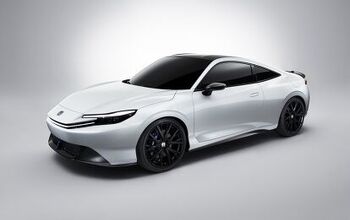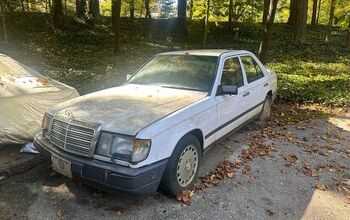TTAC Data Dive: Ford Monthly Sales From 2003-Present
Ford got a whole lotta love around here yesterday for agreeing to hook up TTAC’s staff with better press fleet access. Though the move shows that Ford is more willing to face the truth than its Detroit competition, the announcement generated perhaps a bit more optimism about the firm’s fortunes than the data warrants. One commenter got so carried away by the good vibes that he opined “the Ford brand pretty much has a good car in every segment there is, with the exception of the minivan.” Not quite. Let’s turn to our XLS spreadsheets of Ford monthly sales since 2003, shall we? [Thanks to bumpy ii for the spreadsheet]
Similarly, the Flex is off to a slow start. Though its sales show steady growth, Ford’s stab at the alterna-MPV segment is miles away from the kind of volume that the saggy Windstar used to push. The question facing the Flex is whether its sales will keep ramping up or top out at 5-6 thousand units per month for a year or so and then fall away, as was the case with Freestyle/Taurus X.
On the SUV front, the Escape is the name of the game. Although far longer in tooth than the Edge CUV, the Escape is proving the more resilient model. Edge was slaughtered by rising gas prices last summer, and has been slow to recover. Escape sales took less of a hit, and bounced back faster and stronger. Not that anything has made up for the giant sucking sound that used to be Explorer and Expedition sales.
Focus sales haven’t been the same since the Fusion was introduced. Sure, there have been a few good months, but demand has been especially inconsistent since the latest North America-only “restyle.” The Fusion did add sales in a segment that Ford had largely abandoned, but wasn’t a consistent 15k/month+ seller . . . until the recent refresh. It’s safe to say (for now, anyway) that the new Fusion is a legitimate hit. Only the F-150 outsells it, and only the Escape comes close.
Mercury and Lincoln are a wasteland. Full stop. A few thousand Fusion rebadges per month, the Mariner and the MKX are the only models that register. Sure, they represent extra profit, but the rebadge game can’t last forever. On the other hand, Volvo does have unique product and is doing even worse. The premium game hasn’t been good to Ford.
On the other hand, Ford has the skeleton of a solid product lineup for its Ford brand. If Fusion stays in demand, adding the Fiesta and the Euro Focus could give Ford the most promising American small-car lineup in, well, forever? Meanwhile, if the F-150 stays solid and the Ranger finally gets a major update, Ford could be remarkably well positioned. There are lots of “ifs” to all of this, but if you’re looking for optimism in Detroit, Ford is easily as good as it gets.
More by Edward Niedermeyer
Latest Car Reviews
Read moreLatest Product Reviews
Read moreRecent Comments
- 28-Cars-Later So Honda are you serious again or will the lame continue?
- Fred I had a 2009 S-line mine was chipped but otherwise stock. I still say it was the best "new" car I ever had. I wanted to get the new A3, but it was too expensive, didn't come with a hatch and no manual.
- 3-On-The-Tree If Your buying a truck like that your not worried about MPG.
- W Conrad I'd gladly get an EV, but I can't even afford anything close to a new car right now. No doubt if EV's get more affordable more people will be buying them. It is a shame so many are stuck in their old ways with ICE vehicles. I realize EV's still have some use cases that don't work, but for many people they would work just fine with a slightly altered mindset.
- Master Baiter There are plenty of affordable EVs--in China where they make all the batteries. Tesla is the only auto maker with a reasonably coherent strategy involving manufacturing their own cells in the United States. Tesla's problem now is I think they've run out of customers willing to put up with their goofy ergonomics to have a nice drive train.


































Comments
Join the conversation
Not smart to issue debt, smart to finance with loans from banks, which can and will be refinanced over and over again. GM used debt issuance (bonds, very unflexable, lots of owners) to pay for unfunded liabilities, Ford used loans (banks, flexable, terms and rates can be changed and changed again, very few orginizations to deal with and they have an incentive to help you when things go bad) to reorganize/modernize for company (alot of these monies were used to keep it going, but not the orginal intent of). This was the stroke of genuis (or luck) on thier part not the debt raised but what kind of debt, they could have issued debt at that time period and wouldn't have had any problem doing it, if they had, they would have been part of the bail out. For decades Japanese and European companies used bank debt over bond issuances and in US business schools this was mocked (basically a control thing, issue debt you still control your destiney, loans the banks have you), there was a reason for them doing that, it was flexability.
Corporate bank debt will typically have covenants (based on balance sheet metrics, operating profit etc) as well; if you do not meet the covenants, the bank can call the loan. Bonds or bank loans, either way a company has debt it has to service and manage.